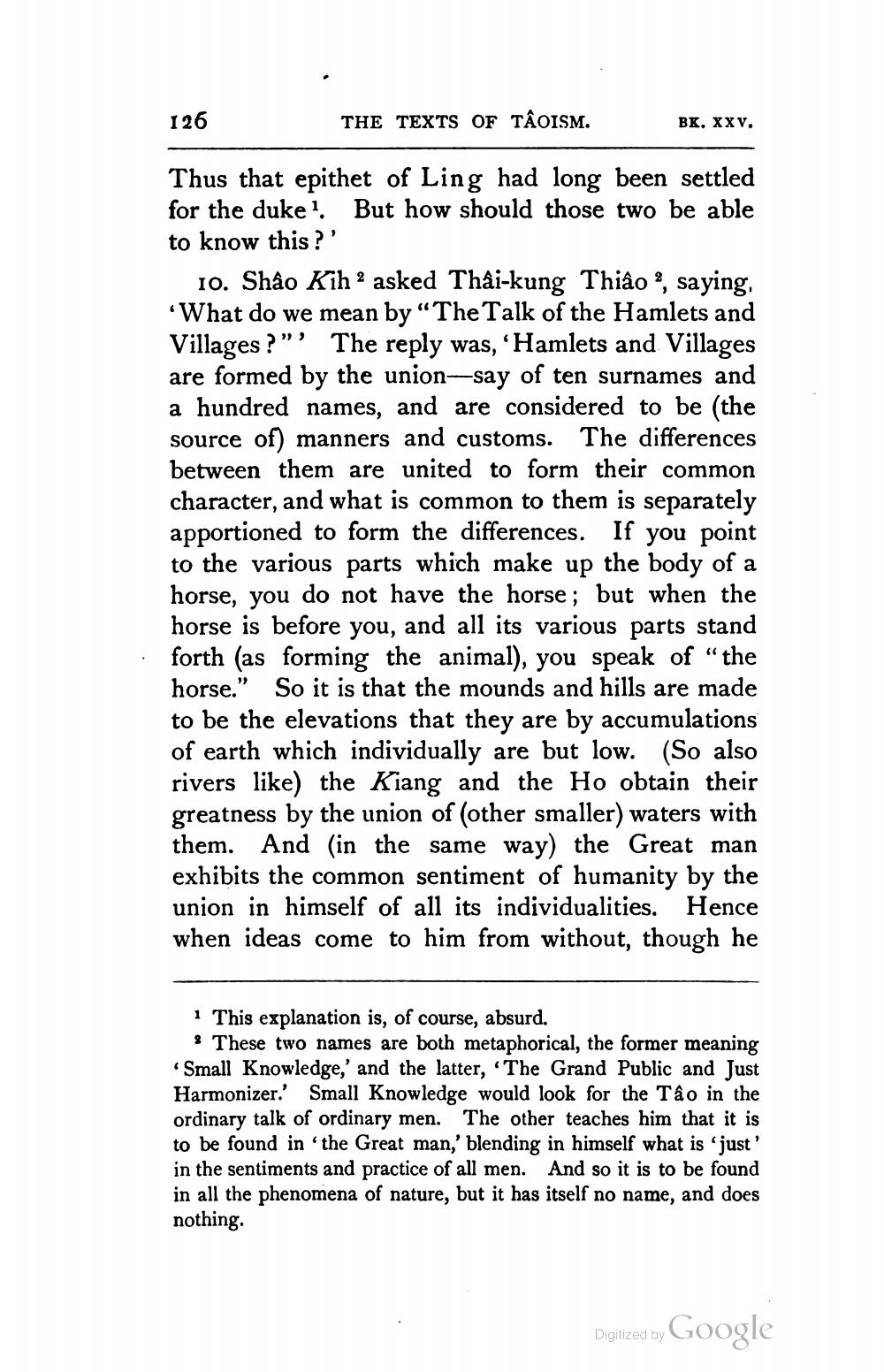________________
126
THE TEXTS OF TAOISM.
BK. XXV.
Thus that epithet of Ling had long been settled But how should those two be able
for the duke1. to know this?'
10. Shâo Kih2 asked Thâi-kung Thiâo, saying, 'What do we mean by "The Talk of the Hamlets and Villages?" The reply was, 'Hamlets and Villages are formed by the union-say of ten surnames and a hundred names, and are considered to be (the source of) manners and customs. The differences between them are united to form their common character, and what is common to them is separately apportioned to form the differences. If you point to the various parts which make up the body of a horse, you do not have the horse; but when the horse is before you, and all its various parts stand forth (as forming the animal), you speak of "the horse." So it is that the mounds and hills are made to be the elevations that they are by accumulations of earth which individually are but low. (So also rivers like) the Kiang and the Ho obtain their greatness by the union of (other smaller) waters with them. And (in the same way) the Great man exhibits the common sentiment of humanity by the union in himself of all its individualities. Hence when ideas come to him from without, though he
1 This explanation is, of course, absurd.
These two names are both metaphorical, the former meaning 'Small Knowledge,' and the latter, 'The Grand Public and Just Harmonizer.' Small Knowledge would look for the Tâo in the ordinary talk of ordinary men. The other teaches him that it is to be found in the Great man,' blending in himself what is 'just' in the sentiments and practice of all men. And so it is to be found in all the phenomena of nature, but it has itself no name, and does nothing.
Digitized by Google




